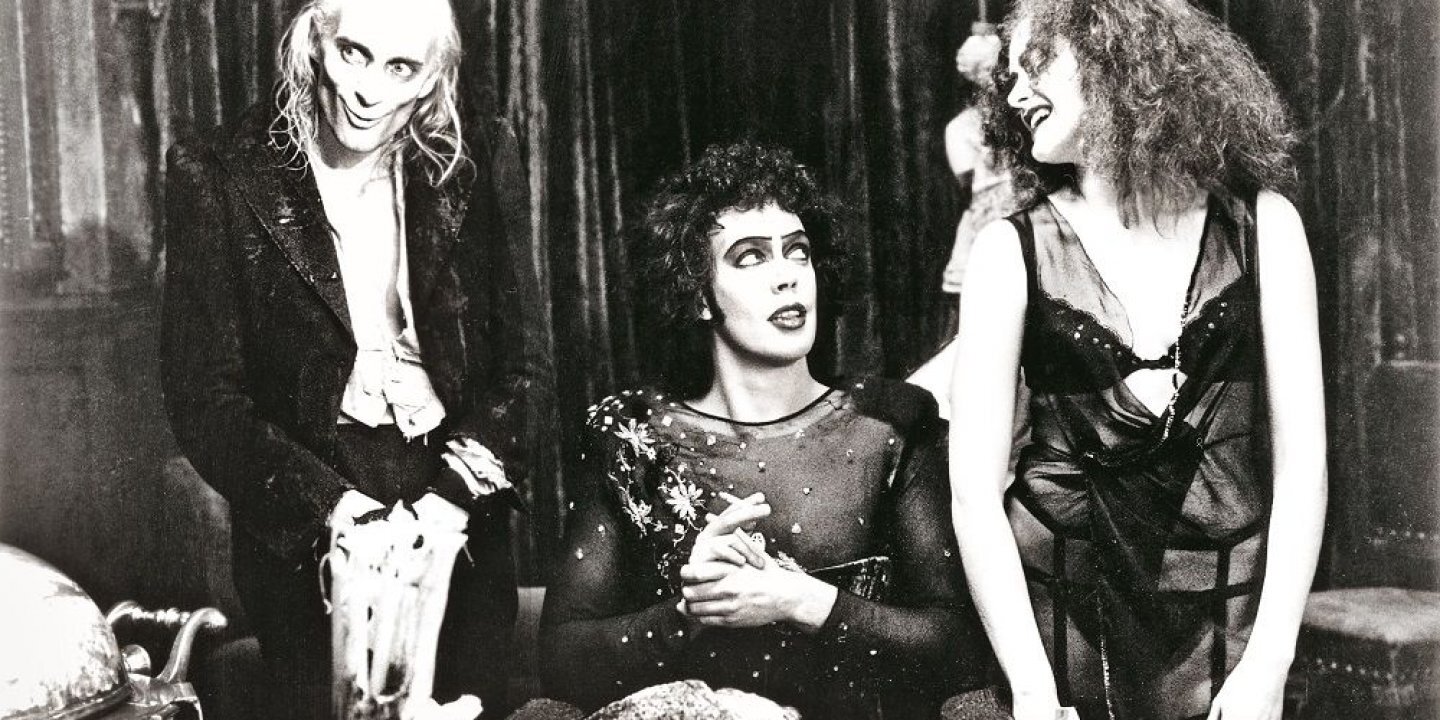'The Rocky Horror Picture Show' - A Timeless Cult Classic or Outdated Jab to the Queer Community?
Since 1975, The Rocky Horror Picture Show has made its way to a vast array of audiences. Upon opening 45 years ago, it became a hit among the LGBTQ+ community, who had very little representation in the media. Midnight screenings became a safe and welcome place for young people to experiment with makeup, fashion, gender identity and expression, and sexuality without judgment. A place away from hetoronormative society was rare, and comfort was found in The Rocky Horror Picture Show and the extraordinary, unapologetic, larger than life characters in the movie (and probably in the audiences too!)
However, watching the movie through a critical modern-day lens shows fault in the movie. Is Frank-N-Furter to be looked at with admiration for being a bold queer character, or should we question the movie’s creators for equating queer characters as aliens and artificial science experiments?
Do we celebrate Frank-N-Furter for being so confident in his sexuality, or do we hold him accountable for his abuse towards Brad, Janet, and basically everyone else? Is “Sweet Transvestite” performed by Frank-N-Furter an empowering reclamation of the derogatory term, or did the song just age poorly?
The casting of Tim Curry as Frank-N-Furter could be a topic for a novel. On one hand, you could argue that the role should be given to a trans person who has lived the queer experience and can play the role authentically, as opposed to a cisgender man playing a queer character. On the other hand, you can say that the movie clearly depicts Frank-N-Furter as a man who feels more at home in feminine clothing, therefore Tim Curry’s portrayal is no less authentic than a trans person’s.
It’s worth noting that in 2016, Richard O’Brien (who wrote the movie and played Riff Raff) said he agreed with a statement made by second-wave feminist Germaine Greer when she said “Just because you lop off your d**k and then wear a dress doesn’t make you a f***ing woman.” Interestingly, O’Brien identifies as a third sex, which he personally describes makes him about 70% male, 30% female.
Perhaps the biggest question is; if you see the many flaws in the movie and the people who created it, can you still enjoy it and call yourself an ally? That question is much too complex for a simple reply and doesn’t have one correct answer.
It’s very possible to enjoy problematic works, but we must hold ourselves accountable in recognizing what aspects may be dated and unacceptable. Also, before we regard the movie favorably, we must remember to check our privilege, educate ourselves on those the movie marginalizes, and remind ourselves that the livelihood and existence of those who may be harmed by the movie are far more important than our opinion.
What do you think of the Rocky Horror Picture Show? Let us know in the comments!
